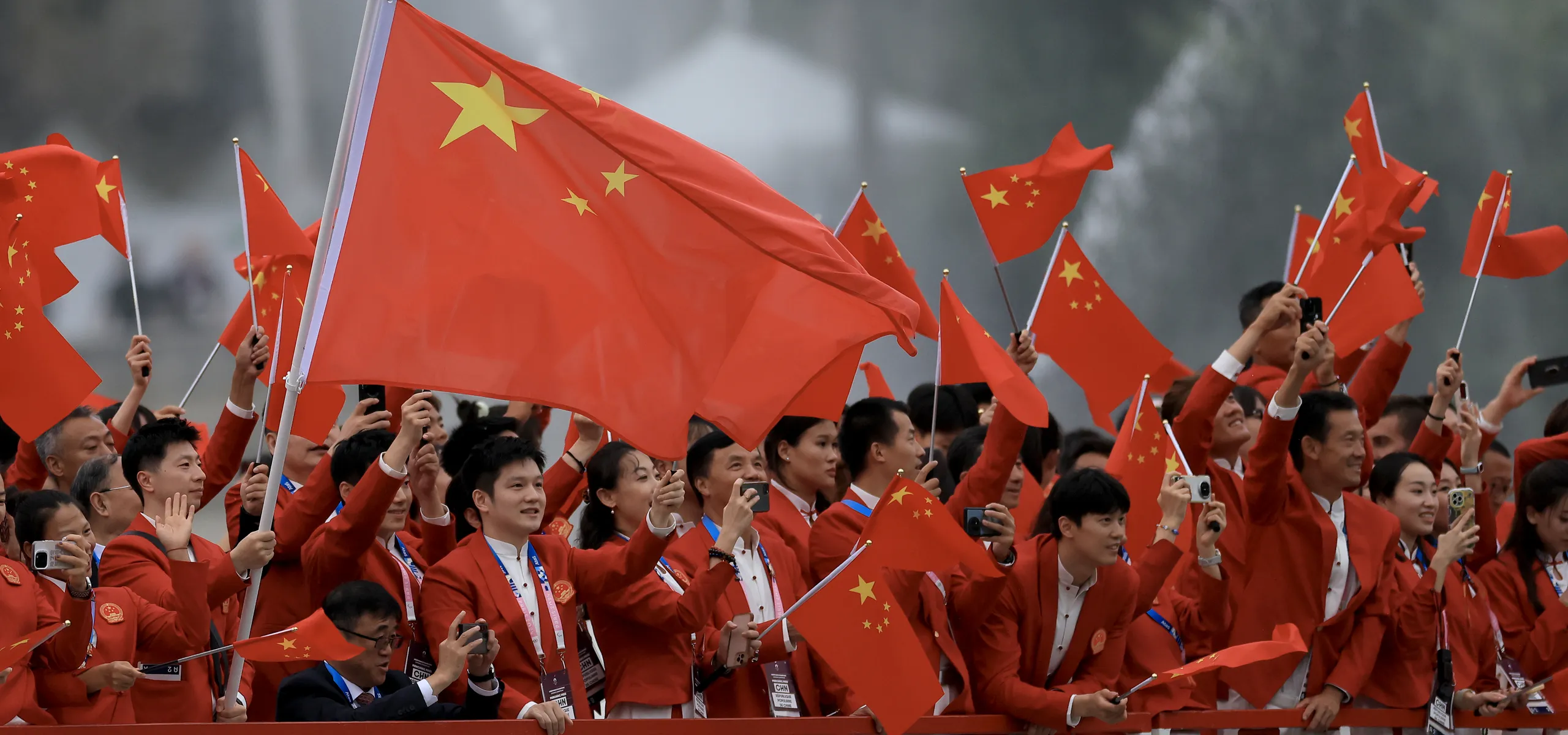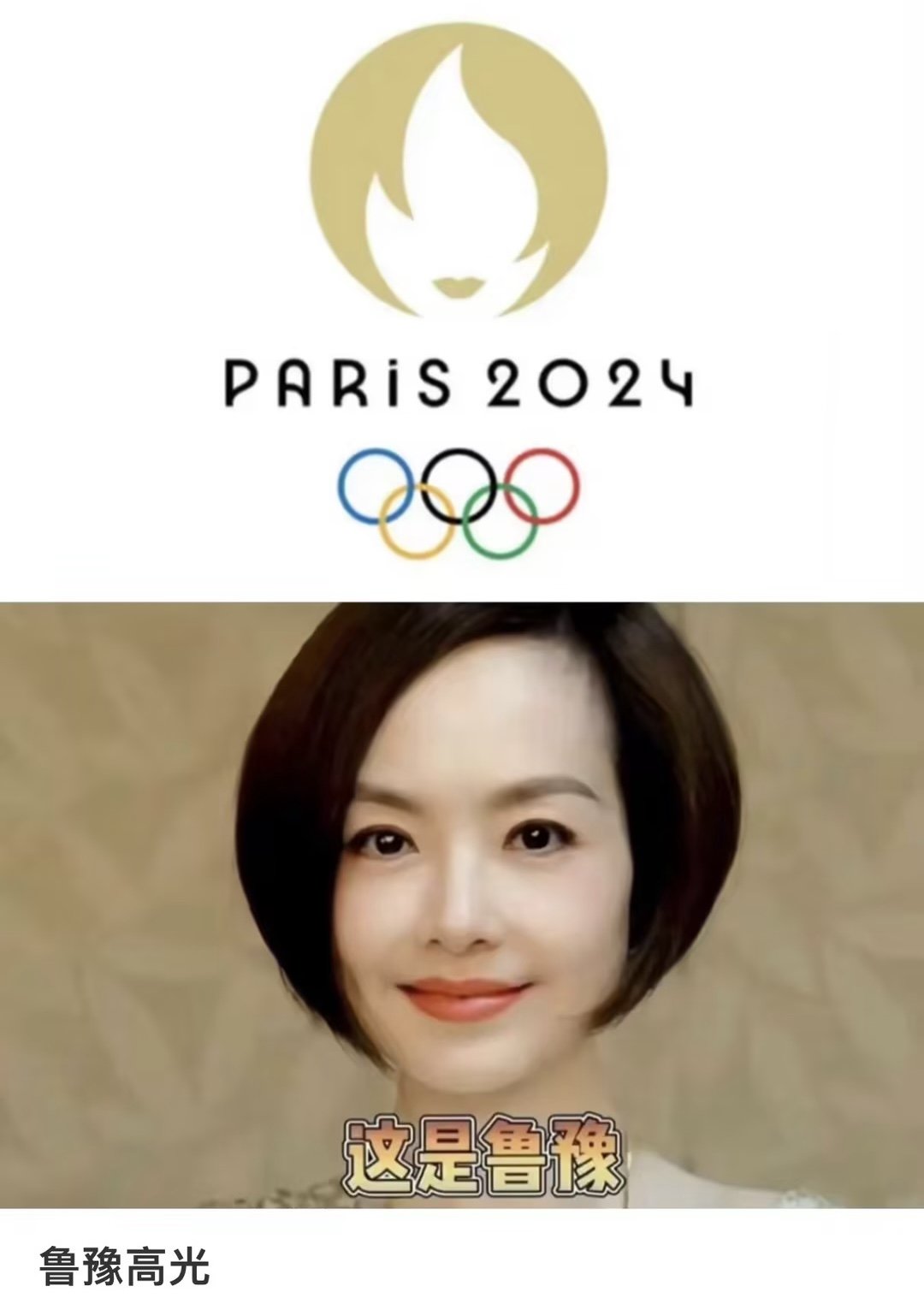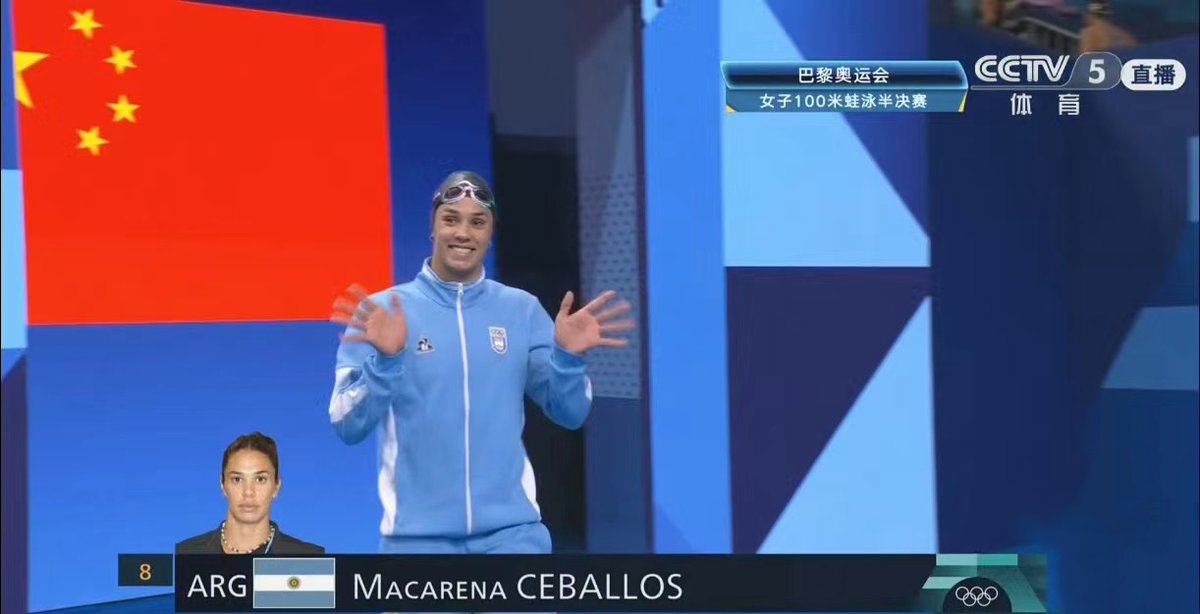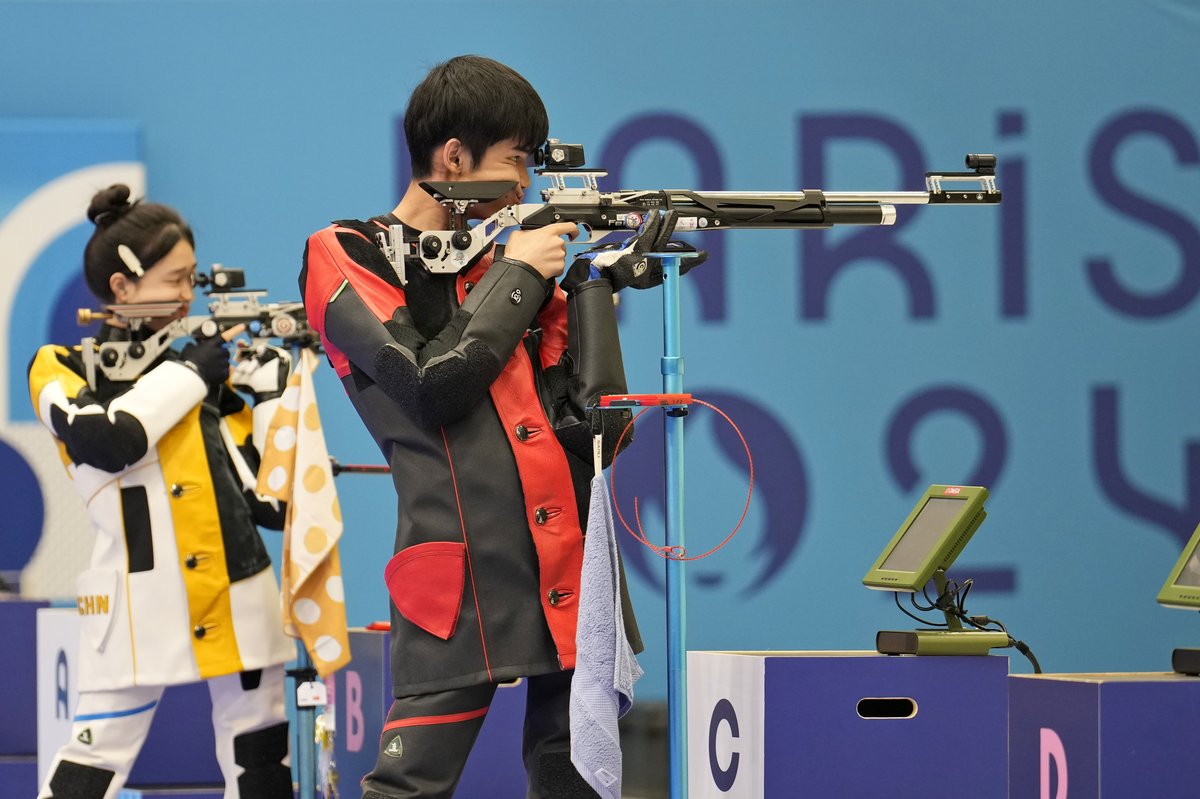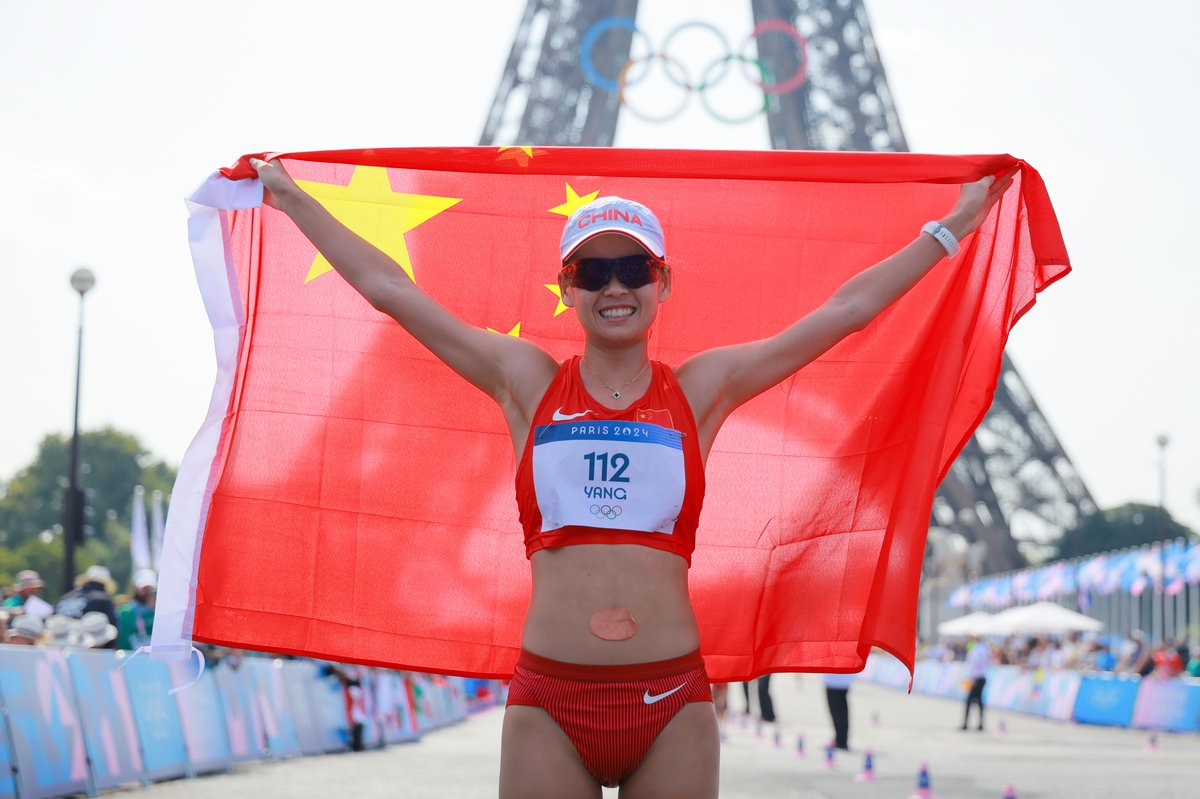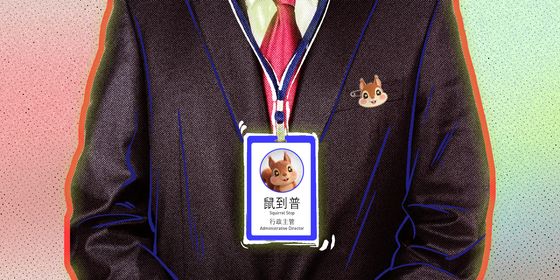From “sense of relaxation” to “makeshift troupe,” discover how Chinese netizens are talking about the Paris Olympics
As China currently stands atop the medal tally with 11 golds, including a world record-setting performance by swimmer Pan Zhanle in the men’s 100-meter freestyle at the 2024 Paris Olympics, Chinese social media is also buzzing with energy and creativity. While athletes vie for a spot on the podium, netizens are busy creating fresh memes and trendy phrases inspired by their performances.
While at past Olympics the social media frenzy usually started after the Games officially kicked off, the online discussion for this event began as early as 2019, when the Paris Olympic Committee announced its official emblem. Netizens soon noticed the striking resemblance between Marianne, the personification of the French Republic on the emblem, and the famous Chinese TV Chen Luyu, often referred to as China’s Oprah Winfrey. Many internet users even started calling Chen the unofficial ambassador of the Paris Olympics. One popular saying circulating online expressed such bewildered comparison: “Once you accept this premise, you cannot unsee it (一旦接受了这种设定,不管谁看了都得懵 Yídàn jiēshòule zhè zhǒng shèdìng, bùguǎn sheí kànle dōu děi mēng).”
The most controversial event at this year’s Olympics was probably the opening ceremony, where the “blue man”—French entertainer Philippe Katerine—portrayed the Greek god of wine, Dionysus, in a parody of Leonardo da Vinci’s “Last Supper.” Covered in glistening blue paint with little clothing, Katerine’s performance sparked widespread debate around the world. Chinese netizens on the microblogging platform Weibo called the act “abstract (抽象 chōuxiàng)” and embodying “a kind of beauty that ignores the audience’s survival (有种不顾观众死活的美 yǒu zhǒng búgù guānzhòng sǐhuó de měi).” They also noted that the French people have “a mental state far ahead of its time (精神状态遥遥领先 jīngshén zhuàngtài yáoyáo lǐngxiān).”
Read more about the Olympics:
- Nine Chinese Athletes to Watch at the Paris Olympics
- How China Ended 30 Years in the Olympics Wilderness
- Do Naturalized Athletes Help or Hinder China’s Sports Programs?
The Olympic Committee issued an apology two days later to those offended by the performance, and Chinese netizens playfully teased the organizers’ attitude: “I’ve behaved, please let it go (已老实,求放过 Yǐ lǎoshi, qiú fàngguò).”
Unfortunately, that’s not the only apology the committee had to make after the ceremony. They also deeply apologized for wrongfully introducing South Korea as North Korea when the flag-waving team sailed down the River Seine. But the organizers didn’t seem to have learned from their mistakes. In the following days, they misspelled the South Korean gold medalist Oh Sanguk’s name, displayed a Chinese flag behind Argentine swimmer Macarena Ceballos as she waved to the audience during the women’s 100-meter breaststroke semifinals, and played the national anthem of Sudan before a basketball game featuring the South Sudan team. In light of these repeated mistakes during the events, many Chinese netizens joked: “Is this the ‘extreme sense of relaxation’ of the French (这就是法国人的‘超绝松弛感’吗 Zhè jiùshì Fǎguórén de ‘chāojué sōngchígǎn’ ma)?”
Stereotypically, the French are regarded by Chinese people as romantic, relaxed, and laid-back. Many believe that we should learn from this chilled vibe: “If you make a mistake or find yourself in an awkward situation at work or school, just remember how the French handled the flag-raising at the opening ceremony (如果你在学习或者工作中犯了错或是遇到了很尴尬的情况,不如想想法国人是怎么在开幕式升旗的 Rúguǒ nǐ zài xuéxí huòzhě gōngzuò zhōng fànle cuò huòshì yùdàole hěn gāngà de qíngkuàng, bùrú xiǎngxiang Fǎguórén shì zěnme zài kāimùshì shēngqí de),” referencing how the Olympic flag was hung upside down during the opening ceremony. Chinese netizens humorously linked this to the tradition of hanging the character for “fortune (福)” upside down during the Lunar New Year, commenting: “It’s okay if the flag is hung upside down. This is called ‘the Olympics’ has arrived. (旗子挂倒了没事哒,这叫‘奥运’到了。Qízi guàdǎole méishì da, zhè jiào ‘Àoyùn’ dào le.)”
However, others criticized the organizers for using this chill vibe as an excuse: “Relaxation means doing your job well with a light heart, not being careless or irresponsible (松弛是用轻松的心态做好本职工作,不是随随便便不负责任 Sōngchí shì yòng qīngsōng de xīntài zuòhǎo běnzhí gōngzuò, bú shì suísuí biànbiàn bù fù zérèn),” one comment on the social media app Xiaohongshu read.
Amid all the chaos at the 2024 Paris Olympics, Chinese netizens reflected on the superficiality and underlying issues of various organizations. They observed that, while things might seem impressive on the surface, each has its own problems underneath, declaring, “The world is a huge makeshift troupe (世界是一个巨大的草台班子 Shìjiè shì yí gè jùdà de cǎotái bānzi).”
The Chinese team also showcased their own sense of relaxation during the game, especially the young athletes, many born after 2000. They are labeled the “strongest summer interns ever (史上最强暑假工 shǐshàng zuì qiáng shǔjiàgōng),” since many are still in high school or younger. Unlike previous competitors who often used their real names on Weibo, many Gen Z athletes have chosen usernames that are full of distinctive personalities and humor, like shooter Sheng Lihao’s handle translating to “Just relying on eating to…” and another shooter Du Linshu’s to “Super Capybara.” These names lead many netizens to quip: “I thought it was an anime convention, but it turned out to be the Olympics (看着以为是二次元开会,没想到开的是奥运会 Kànzhe yǐwéi shì èrcìyuán kāihuì, méi xiǎngdào kāi de shì Àoyùnhuì).”
After race walking star Yang Jiayu won the gold in the women’s 20-kilometer event on August 1, the tape on her belly button sparked heated discussions about this “mysterious power from the East (来自东方的神秘力量 láizì Dōngfāng de shénmì lìliàng).” In traditional Chinese medicine, the belly button is a weak spot of the human body and bad qi can come through it if not covered properly. Many Chinese internet users quickly echoed this sentiment, suggesting that “Chinese people spend their whole lives covering their belly buttons (一生要盖肚脐的中国人 yìshēng yào gài dùqí de Zhōngguórén).” They even coined an amusing saying about the unique habit: “The last leaf on earth would definitely be used by Chinese people to cover their belly buttons (世界上最后一片树叶绝对会被中国人拿来盖住肚脐眼 Shìjiè shàng zuìhòu yí piàn shùyè juéduì huì bèi Zhōngguórén nálái gàizhù dùqíyǎn).”
Chinese internet users were also left amazed by the breathtaking performance of female swimmers Quan Hongchan and Chen Yuxi in the women’s synchronized 10-meter platform event this Wednesday. The duo is known for their “splash-disappear magic (水花消失术 shuǐhuā xiāoshīshù).” Netizens exclaimed at their performance that “it seems like a crack opened in the water, and they just slipped right in (好像水开了一条缝,她们就钻进去了 hǎoxiàng shuǐ kāile yì tiáo fèng, tāmen jiù zuàn jìnqù le).”
As we’re halfway through the 2024 Paris Olympics, the excitement and drama will continue to unfold both in the arenas and online. Stay tuned to TWOC for more language guides so you can join in on the conversation.





